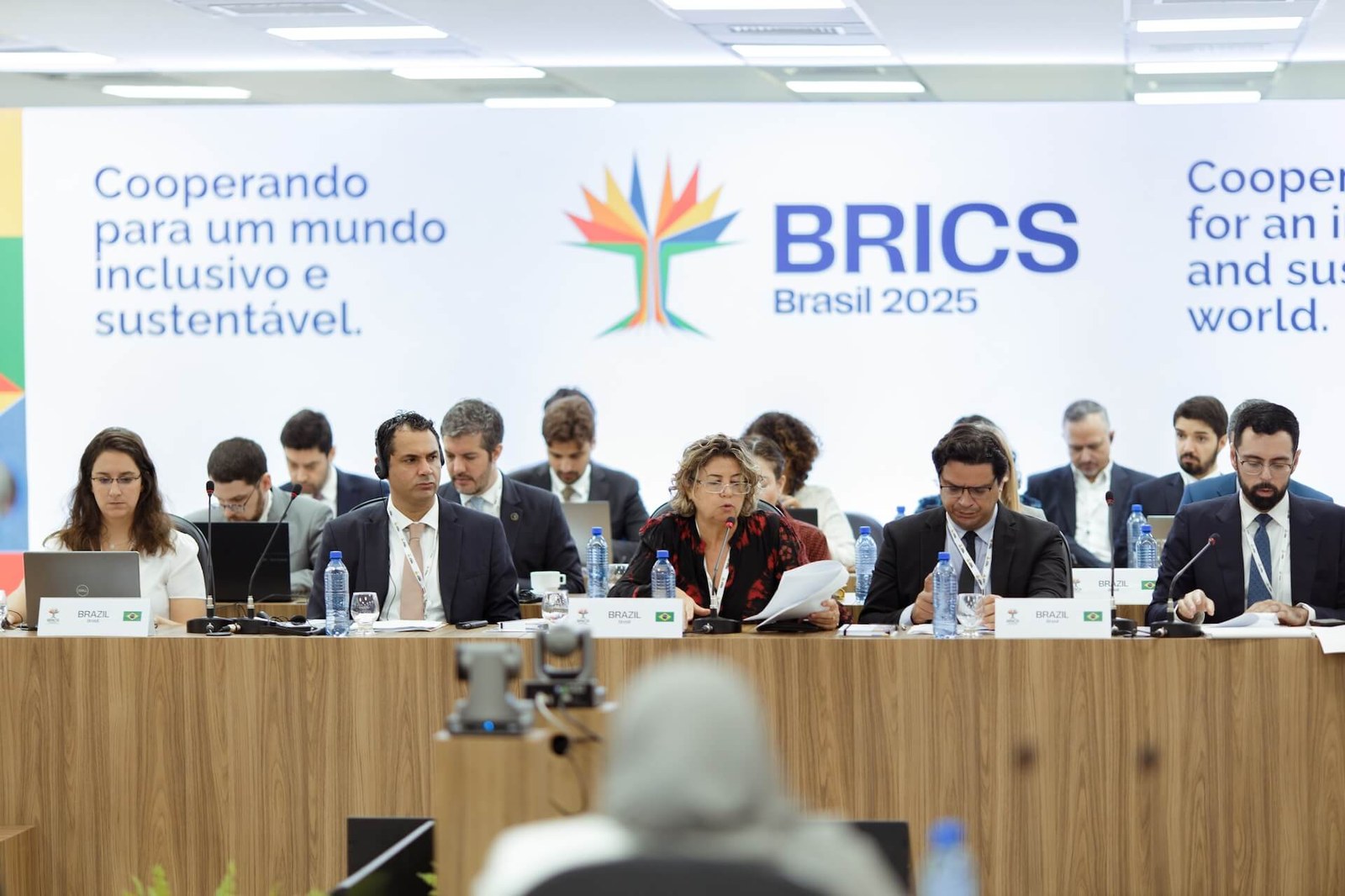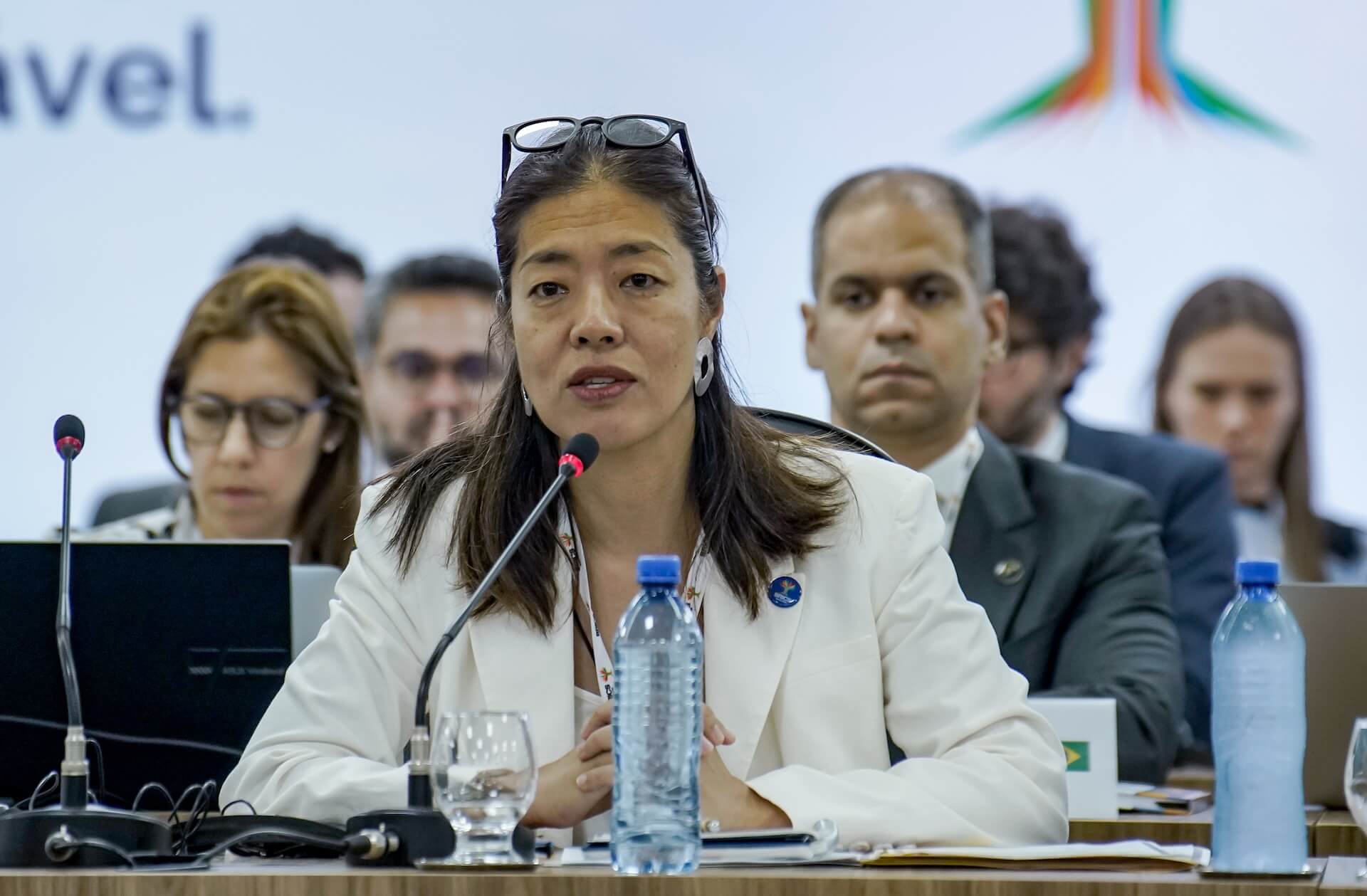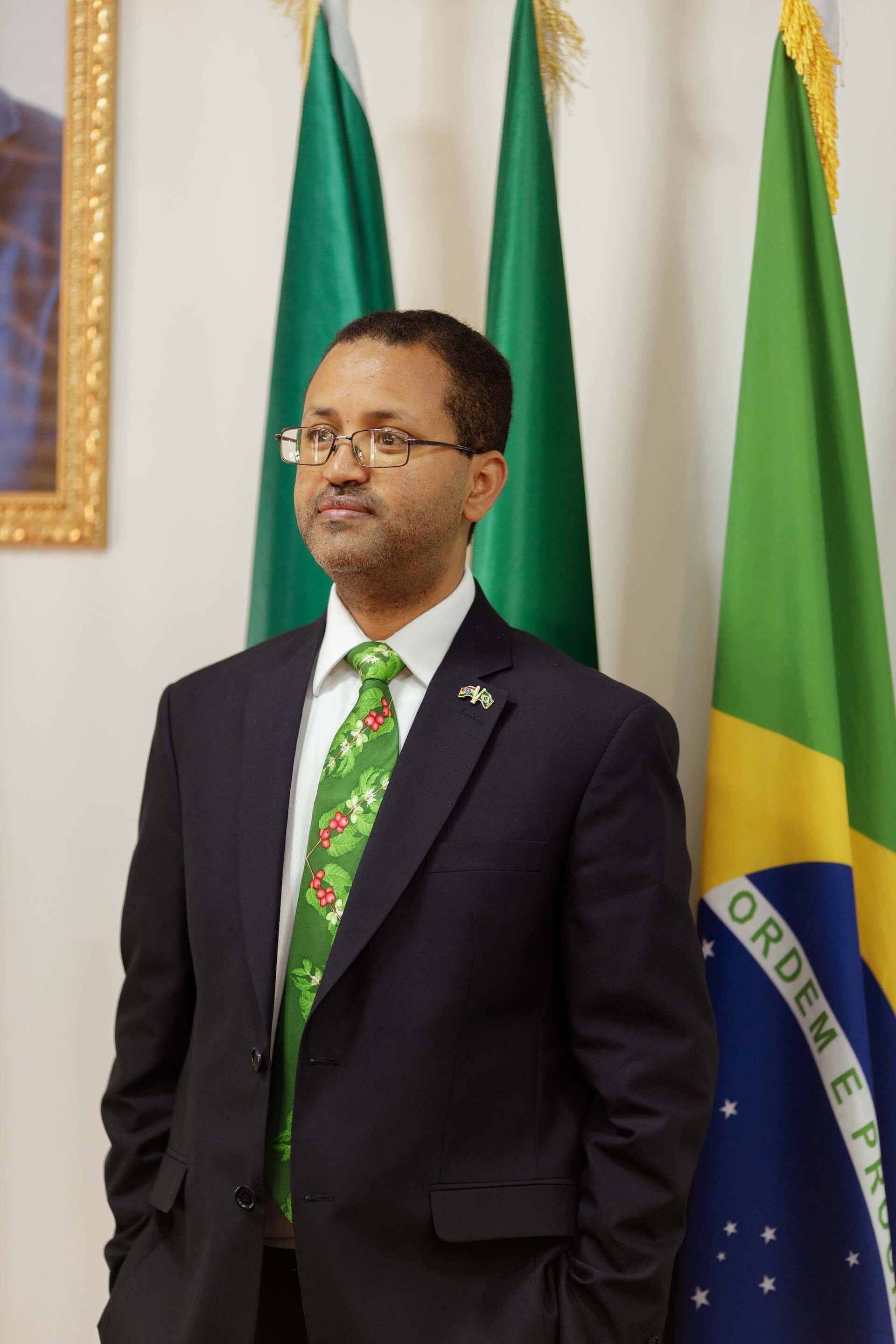BRICS proposes new climate geopolitics focused on financing and social justice
The group argues that combating climate change requires coordinated actions, adequate resources, and commitment to sustainable social development in the Global South.

By Inez Mustafa and Franciéli Barcellos | inez.mustafa@presidencia.gov.br e francieli.moraes@presidencia.gov.br
Resilience, adaptation, and mitigation walk side by side with financing, just transition, and climate justice. This is the climate geopolitics proposal that the BRICS Contact Group for Climate Change and Sustainability and the Environment Working Group discussed this Tuesday and Wednesday, April 1-2. Under the command of the Brazilian Ministry of Environment and Climate Change (Ministério do Meio Ambiente e Mudança do Clima do Brasil /MMA), the meetings preceded the Climate Ministerial Meeting scheduled for Thursday, April 3 and reinforced the role of the BRICS in promoting sustainable development and climate financing.

According to João Paulo Capobianco, Executive Secretary at MMA and coordinator of the Environment WG, “the group must leverage its potential to take on a leading role in a new economic and ecological paradigm where sustainability and prosperity go hand in hand.” In this context, BRICS negotiations can reach a global scale, encompassing social and environmental issues.
Just Transition and Social Inclusion
“A just transition means ensuring job creation and income generation, as well as training people for this changing world,” stated Maria Angélica Ikeda, Director of the Department of the Environment at Brasil’s Ministry of Foreign Affairs (MRE). “Environmental discussions must also bring social and economic benefits,” she added.
Thus, in the BRICS environmental agenda, social and economic development is a key topic for fostering a cross-cutting debate on climate change. Discussions on plastic pollution, desertification, and ecosystem conservation highlighted that an effective strategy must consider the people directly and indirectly affected by decisions, taking into account factors such as class and regional disparities.
Climate Financing
During these two days of meetings, the group also discussed strategies to boost climate financing. According to Capobianco, “there is no fight against climate change or just transition without climate financing.”
The Ethiopian Ambassador to Brasil, Leulseged Tadese Abebe, recalled that in 2009, developed countries committed to mobilizing USD 100 billion per year until 2020 for climate action. He noted that, due to the impacts of rising temperatures, the estimated need for climate financing has increased to USD 1.3 trillion. However, actual funding falls far short of what is required.
“The sustainable development agenda is off course. Only about 17% of the goals are on track. This is a major concern for Ethiopia, Africa, and all developing countries. Therefore, we need concrete actions to get the 2030 Agenda back on track,” argued Abebe.

The ambassador argued that the developing countries are not responsible for climate change, when it is examined since the beginning of the Industrial Revolution. “However, we are the ones that suffer the most with the impacts of these changes,” he stated. For Abebe, the Paris Agreement commitments must be reaffirmed and efforts on the part of the developed countries to ensure climate financing must be intensified under the principle of “common, but differentiated responsibilities.
The principle of "Common but Differentiated Responsibilities" (CBDR), which underpins the Paris Agreement, establishes that all countries must cooperate in combating climate change while recognizing that developed nations, due to their greater historical responsibility for greenhouse gas emissions and superior economic and technological capacity, must take on more stringent obligations—such as deep emission cuts and financing climate actions in developing countries. Developing countries, in turn, must set goals tailored to their realities, ensuring climate justice and equity in the distribution of global efforts.
From the perspective of Brazilian Ambassador Liliam Chagas, when developed countries fail to fulfill their responsibilities, they create a power vacuum. “This power vacuum is an opportunity for us because BRICS countries have the resources and capacity to redefine the course of the global climate transition,” she argued.
The group believes that BRICS can take the lead in developing its own solutions to mobilize financing and drive systemic changes in the financial sector. Moreover, it can create fiscal space in local public budgets and attract resources to invest in climate action and adaptation, integrating public and private financing to eradicate hunger and poverty while addressing climate change. To achieve this, the group sees financial system reform as essential, including facilitating accessible, long-term credit, supporting integrated economic strategies, and strengthening national and international development banks.
New Development Bank (NDB)
BRICS countries are implementing strategies to ensure that financial flows reach projects that enhance climate ambition and action, stated the Contact Group coordination. Under Brasil’s presidency of the group, the New Development Bank (NDB) plays a key role in this effort by promoting integrated and sustainable approaches to project planning, financing, and execution.
“The support of the BRICS Bank is key for the promotion of economies that are more resilient to climate change, fostering a more resilient agriculture and building national capacity to address climate disasters,” stated the Ethiopian ambassador.
Established in 2014, the BRICS Bank has been increasing financing in areas that foster sustainable development. By 2026, 40% of its investment portfolio will be allocated to sustainable projects. These investment categories provide both climate benefits and contribute to economic development and social equality, reiterated the Contact Group coordinator.
One of the key outcomes of the Contact Group for Climate Change and Sustainability discussions is the shared understanding that even greater climate financial gains can be achieved through synergetic collaboration among the NDB, national development banks from BRICS countries —such as Brasil’s National Development Bank (BNDES)— and private banks.